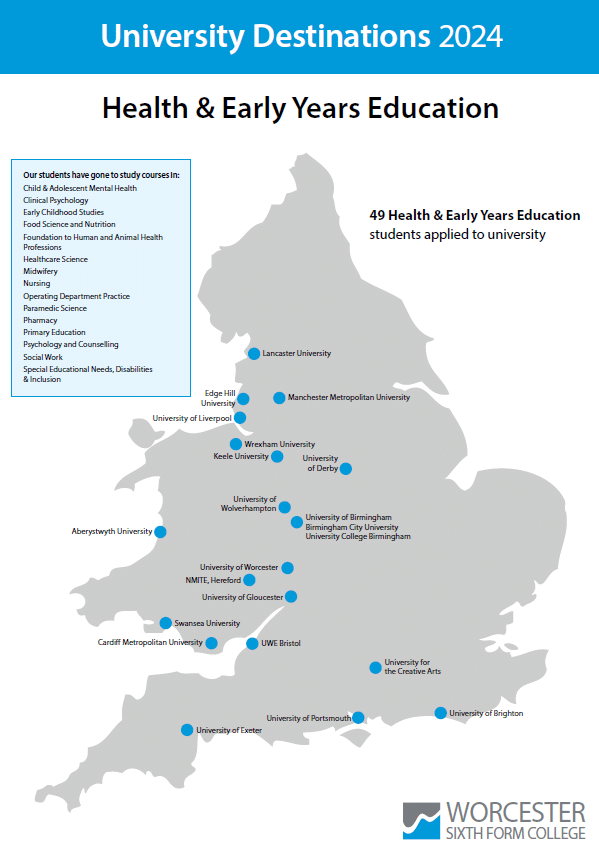Why Study Food Science and Nutrition?
This is an exciting subject that is suitable for any student who is interested in Food; from how it is produced, how it affects our health, medical conditions linked to diet, how food can be prepared safely and skillfully. This qualification allows you to gain a wealth of knowledge about the Food Science and Nutrition Industry. Topics covered include:
- Food Safety and Environmental Health
- Food Science
- Nutritional Needs of Specific Groups
- Medical Conditions linked to Diet
- Dietetics, Current Food Initiatives and Health Eating Guidelines
Why study Food Science and Nutrition at Worcester Sixth Form College?
The department has excellent resources which will enable students to experience a wide range of learning opportunities.
- There is strong emphasis on practical work – the students will develop their high level food skills each week. Demonstrations will be regularly given to introduce students to new techniques.
- We have a flexible teaching approach, using a range of quality learning materials, most of which have been designed in-house. Students will each be given a recipe collection pack for their practical work. Coursework booklets are used to help guide them through every step of their assignments.
- We have a range of online learning and assessment materials.
- Students have the opportunity to visit food businesses and exhibitions, such as local Cheese and Ice Cream Businesses, and trips to the Good Food Show at the NEC. Theory topics are enhanced by visiting speakers, including Environmental Health Visitors, Caters and Food Business Owners.

Alliyah Akathiotis
Progression Opportunities
With the increase in consumption of pre-prepared/processed food there is sharp rise in the number of job opportunities within the field of Food Science and Nutrition. An understanding of food science and nutrition is relevant to many industries and job roles such as manufacturing, product design, food stylist, food journalism, health promotion, dietitian/nutritionist, sports coaching, etc. The food business is one of the most successful industries in the UK. Demand is approximately four times higher than the number of graduates leaving university; therefore, career prospects are excellent.
University destinations of recent Food Science and Nutrition students include: BSc Nutrition (University of Nottingham), BSc Dietetics and Human Nutrition (Coventry University), BSc Food Development and Innovation (University College Birmingham), BSc Human Nutrition (University of Worcester), BSc Food Science (University of Leeds), FdSc Artisan Food Production (Nottingham Trent University).

Entry Requirements
| Essential Qualifications | Other Desirable Qualifications / Combinations | Skills & Attributes Required for Success | Guidance on Costs or Commitments |
|---|---|---|---|
| Please see ‘General Course Entry Requirements’ | GCSE Maths and English at grade 4 or above, otherwise will be added to your programme of study. GSCE in any food course is desirable but not essential. | It is essential to have a real interest in practical food work. Students should be able to work independently, meet deadlines and be happy to share views/ opinions. | Cost of ingredients for regular practical work. |
Qualifications and Enrollment Options
| Qualification Name | A Level Equivalence | Duration | Awarding Body |
|---|---|---|---|
| Certificate | ½ A Level (1 Block) | 1 year | WJEC |
| Diploma | 1 A Level (1 Block) | 1 year (to be studied after successful completion of Certificate) | WJEC |
Related Courses / Activities

Sport and Exercise Science Level 3 Applied



